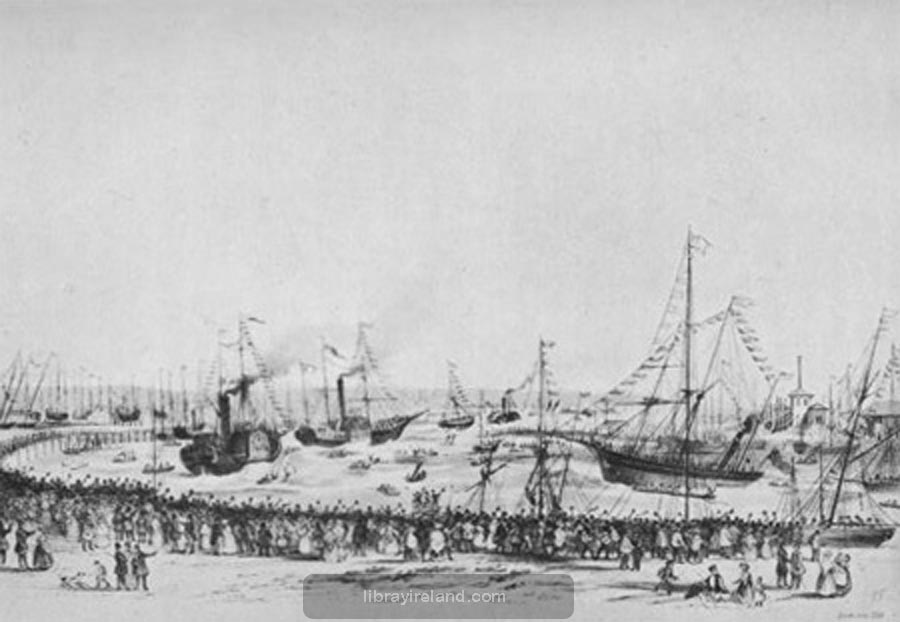Foundation of the Post Office - Story of Belfast
IN the early part of the eighteenth century, there was no post office of any description in Belfast.
In 1702, the Collector of the Revenue had charge of the post bag, and postal messengers travelled on horseback from Dublin. They delivered the letter "bagge" to him and he distributed the letters to those to whom they were addressed, when they called for them. The riding postman was very uncertain in the delivery of letters, and sometimes the bag would be lost for a few days, and not unfrequently never turned up. When he was suspected of having anything of value in his bag, he would be stopped by footpads and robbed.
Then mail coaches were started and were found to be safer and quicker.
In 1739, the first Post Office was opened and the Collector of Revenue was superseded. The letters had to be called for at the Post Office, but ten years later, the uncalled-for letters were sent out, and the old man who delivered them received one penny each for his payment.
In 1768, a six days post to Dublin was established, then later on it was three times a week, and postal service to Scotland twice a week. The mails were carried on an open boat from Donaghadee. The Post Office was frequently removed until it was settled in Donegall Street, then Church Street, and finally to the Custom House, where it remained for many years.
It was frequently the case that every town had a "fool" in it. He was generally a quiet, harmless creature who lived on charity, and provided amusement for the people. Belfast had three or four of these poor creatures at one time.
One of them known as " Jimmy " was employed as a messenger about the markets, and he was sent one day with a basket full of Carrick herrings, but, on the way, he quite forgot where he was to take them to. Poor Jimmy was greatly puzzled to know what to do, but at last the brilliant idea entered his mind that if he posted them, they would be delivered at the right place, so he went to the Post Office and quietly and quickly slipped every herring into the box. He departed well pleased with himself, but history fails to tell us how well the Post-Master was pleased, and perhaps it is just as well that a veil is drawn over the rest of the story.
In 1795, the Post-Master put up a notice to this effect. "That Merchants were requested not to send little boys for letters, but to send proper persons, as little boys behaved very badly and gave great annoyance to the Post-Master who could not be accountable for their conduct."
I wonder if the little boys of the present time behave any better, for it seems to be a very old fashion for boys to amuse themselves. It is a way they have.
There is scarcely any department of daily life in which there is a more marked improvement than in our postal system. The frequency, regularity and safety of the Post Office is a marvellous advance.
The first telegraph was suggested in the year 1804, the projector saying that he would communicate between the light-houses of Donaghadee and Portpatrick, and work as well at night as by daylight, but would keep his method a secret to himself, and he was allowed to do so. The telegraph system has made enormous strides during the past fifty years, and now the whole world is encircled in with the electric wires. Truly there is nothing new under the sun, and an ancient prediction made by Confucius in China when the world was young, has been fulfilled. He said that some day knowledge would run round the earth on the top of sticks. In those far-off days, he must have conjured up in his mental vision a dream of telegraph poles. Now we have the even more wonderful wireless telegraphy, which is the invention of Marconi, whose mother was an Irishwoman, and it is said that he once resided in Ballycastle.
The telephone is also one of the greatest inventions of the present time, and we hold our breath and wonder what will come next.

